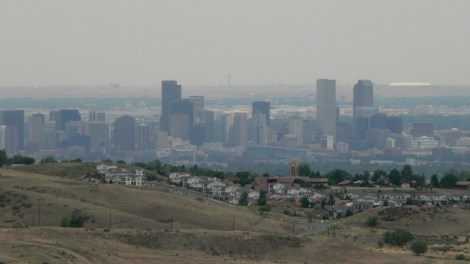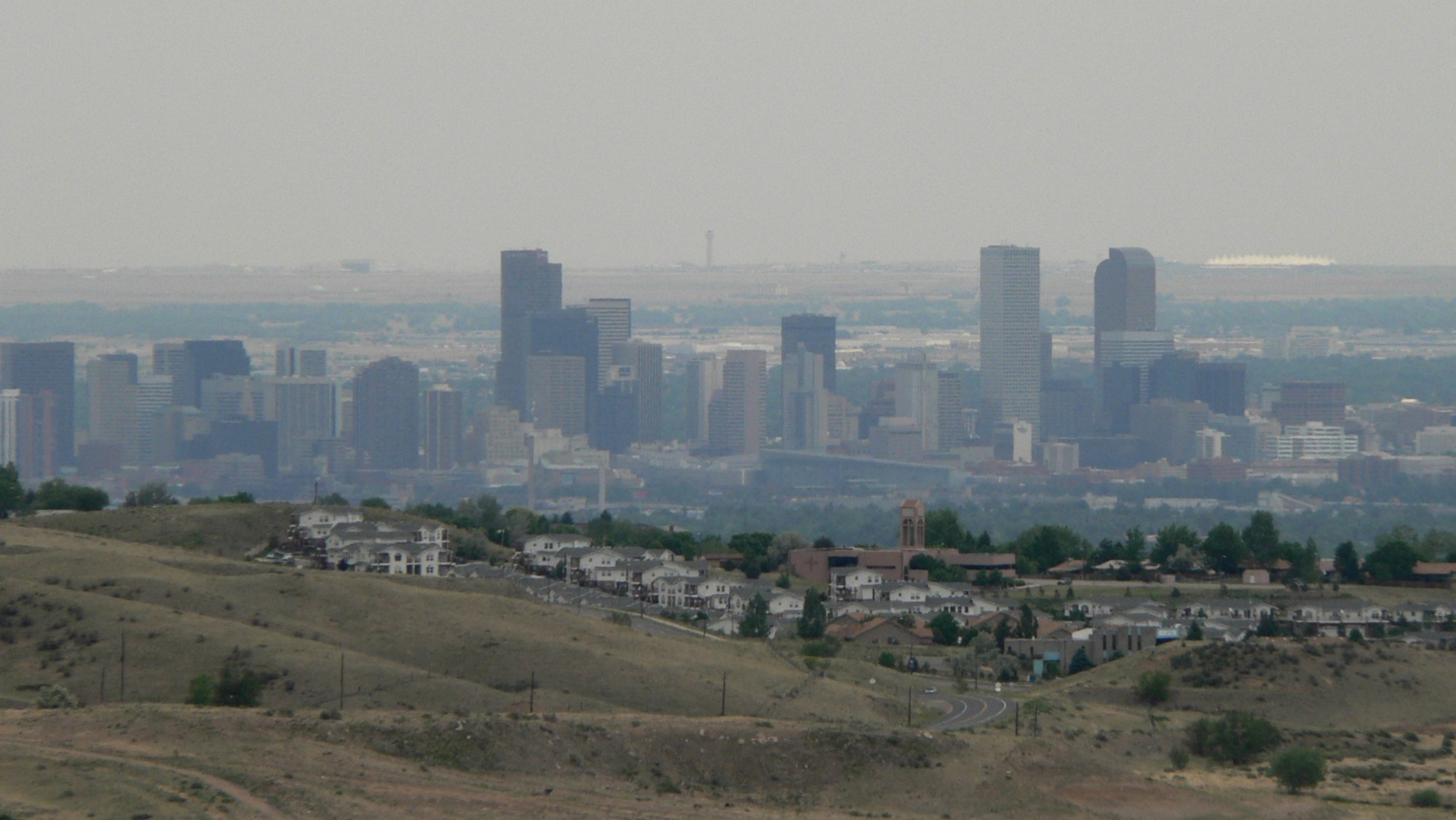
Rick KimpelCutting back on methane leaks could help reduce Denver’s infamous smog.
Frackers and other companies that handle natural gas will have to start being at least a little bit neighborly in Colorado, where new rules will force them to clamp down on methane leaks from wells, tanks, and pipelines.
When methane (natural gas is pretty much just methane) escapes during drilling and transportation, it fuels ozone pollution and global warming. Methane concentrations in the atmosphere are rising, and methane leaks are a major problem in the U.S. By one recent estimate, the U.S. EPA has understated the problem by a half.
To start trying to tackle the problem, Colorado’s air quality commission voted 8-1 on Sunday to adopt the nation’s first state regulations dealing with methane leaks — regulations that the Natural Resources Defense Council had previously described as “common-sense measures to reduce harmful pollution.” Volatile organic compounds will also be regulated under the new rules. Reuters explains:
The regulations would require operators to perform frequent checks for leaks using infrared cameras and other technologies.
“This is a huge breakthrough for cleaner air and a safer climate. Getting to this point took serious resolve and a willingness to find common ground,” said Fred Krupp, president of the Environmental Defense Fund.
Cutting back on methane leaks doesn’t just make environmental sense — it also makes business sense. Any methane that escapes could have been sold and burned for energy. “This is the right thing to do for our business,” a manager with Noble Energy told Bloomberg.
Which could help explain why the not-so-ecofriendly natural gas industry was so willing to cooperate with Colorado rule-makers on this issue.




